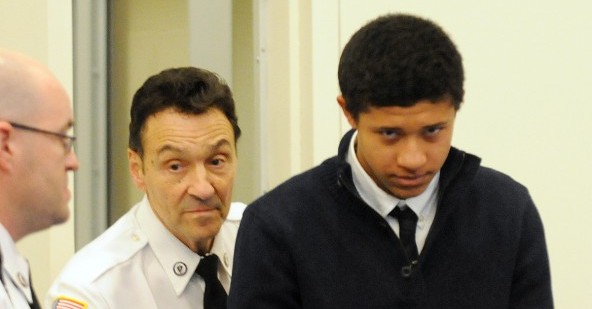By Simon Waxman | Cognoscenti | 2 January 2014
I couldn’t say for sure when I first learned I was an adult, but there’s a good chance it was June 6, 1998. On that day, I had my bar mitzvah. All I had to do was recite a small portion of Torah. Though I would continue for a while the youthful activities that had until then occupied my time — homework, obsessive cataloging of baseball cards, assiduous avoidance of girls (no longer icky, but still terrifying) — I had earned adult status.
The status, I later discovered, was a fiction, but without consequences. For some people, though, the consequences of fictitious adulthood can be significant.
If there are good reasons to treat adult and youth offenders differently, why are those reasons discarded according to the severity of the crime?
One such person is Philip Chism. His name provokes no sympathy, nor should it. But it should provoke a degree of puzzlement.
In October, Chism, who is 14, allegedly murdered his Danvers High School teacher, Colleen Ritzer. When, according to the indictment against him, he stabbed her to death, he became, in the eyes of the law, an adult. Yet when he also allegedly robbed and raped her, crimes that appear to have occurred in the same school bathroom, during same 12-minute span, he was a child. Today, he stands accused as an adult murderer and as a juvenile thief and rapist.



